#Conscious Decision-Making
Explore tagged Tumblr posts
Text
Consciousness and Free Will Behind the Science
The Science Behind Consciousness and Free Will ALL PLEASUER Introduction The Science Behind Consciousness and Free Will Ever catch yourself wondering how you decide what to do? Like, what’s actually happening in your brain when you make a decision? Scientists and philosophers have been scratching their heads over this for ages. It’s all about consciousness and free will, and as we learn more…

View On WordPress
#Artificial Intelligence#Brain Imaging#Cognitive Behavior#Conscious Decision-Making#Conscious Intervention#Consciousness#Decision-Making#Determinism#Free Will#Neuroscience#Personal Responsibility#Philosophy#Prefrontal Cortex#Quantum Mind#Quantum Physics#Quantum Theory#Randomness#Scientific Studies#Scientific View#Unconscious Processes#개인적인#개입#결정론#과정#과학적#관점#뇌#마음#무의식적#신경 과학
0 notes
Text
Me looking at all the people who said they saw the red flags in book one for tamlin but simultaneously romanticist feyre being drugged and forced to lapdance for rhysand in the same book

#the first book is almost ten years old but they still can't stop themselves to romanticise sa#why can they see red flags than a fae demon possessed tamlin during calamai#but can't then rhysand makes the conscious decision to drug and force feyre to lapdance?#like pls use your brain!!!??#acotar critical#sjm critical#anti sjm#anti acotar#anti rhysand#acotar
168 notes
·
View notes
Text
Arthur and John each have a moment in the narrative where one perform a "leap of faith" and the other saves them. Both moments are quite interesting and serve to help the characters realise thay are no longer alone and that they can truly rely on one another (full analysis here, if you're interested).
However, I think there is a third "leap of faith" that occurs way later on... however this time the focus is neither John or Arthur, instead the character being saved is Noel.
Just like Arthur and John, the detective was forced to learn to be independent and self-reliant to ensure his own survival. He was separated very abruptly, and subsequently lost his only friend before being stuck in the Dreamlands. He was completely on his own against the King in Yellow, who tortured him relentlessly and cruelly for months. Noel was then carelessly spit back out in Arkham, traumatised and alone, and had to rebuild his life back up without being able to rely on anyone else.
How could he ever hope to explain all the horrors he was subjected to when no one could ever even begin to understand half of what he had to endure?
But then, years later he meets John and Arthur, and it seems that they can and do understand him. Noel allows Arthur to share his experiences in the Dreamlands... and the detective allows himself to finally recount his story too.
Then, in Part 40, Noel infiltrated a cultist base with John and Arthur and everything goes sideways. His trust in the characters is momentarily broken when John's real identity is revealed to him. Noel is then weakened by reliving his experience in the Dreamlands and nearly loses himself as the King in Yellow once again controls his mind and nearly kills him...
Noel takes a leap:
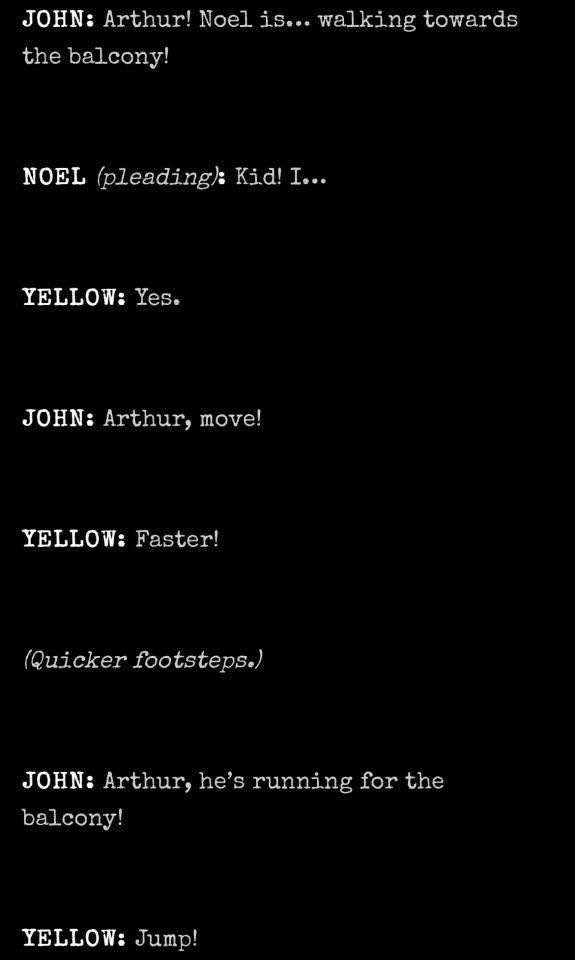
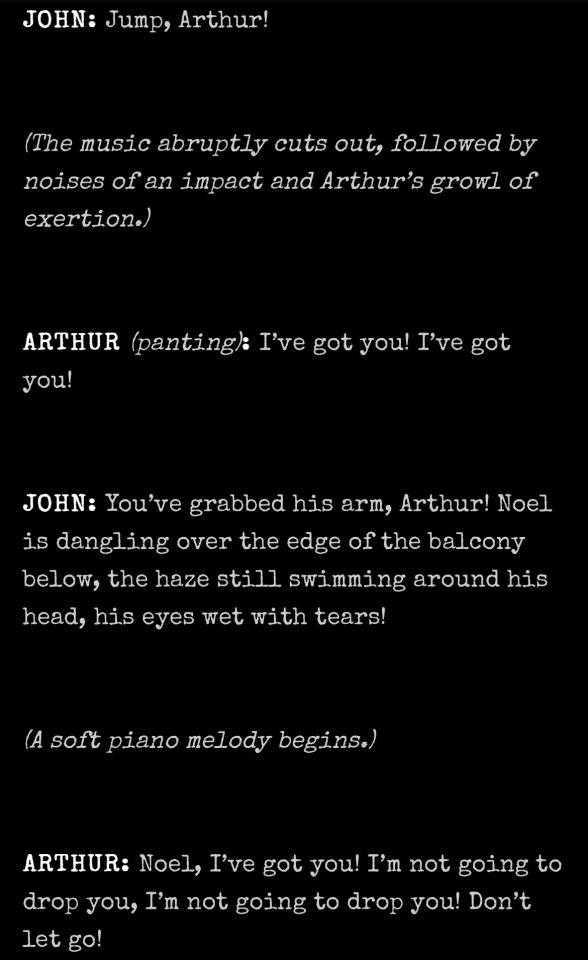
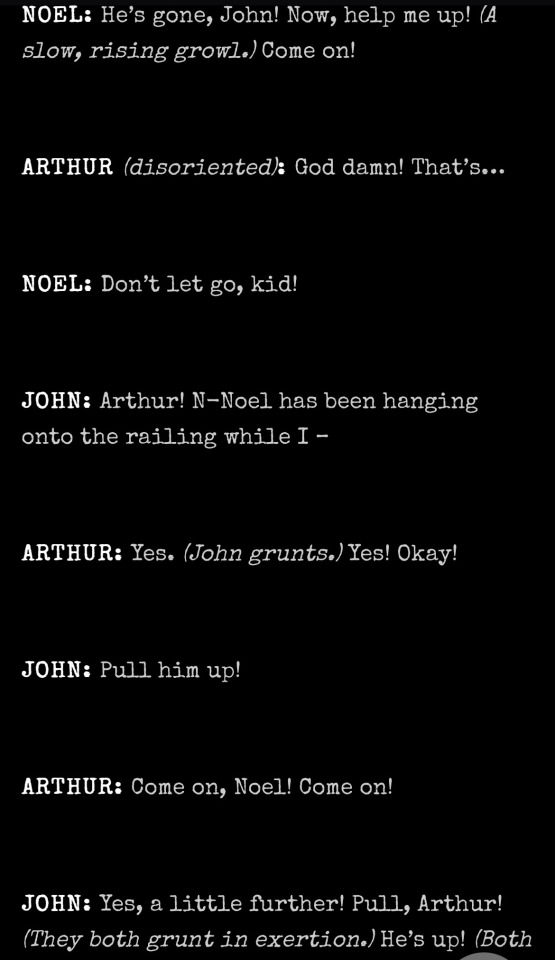
Noel was the first character that not only knew about Arthur and John's sharing a body situation, but also the first that wholly accepted them and tried to understand them better. It's only right that both Arthur and John reached out to help him and save him when he nearly lost himself.
As a side note, I think it’s really interesting how Arthur kept calling him out using his real name (Charlie), while John tried to reach him using his chosen name (Noel) during this scene. It's such an excellent, little detail which I really enjoyed.
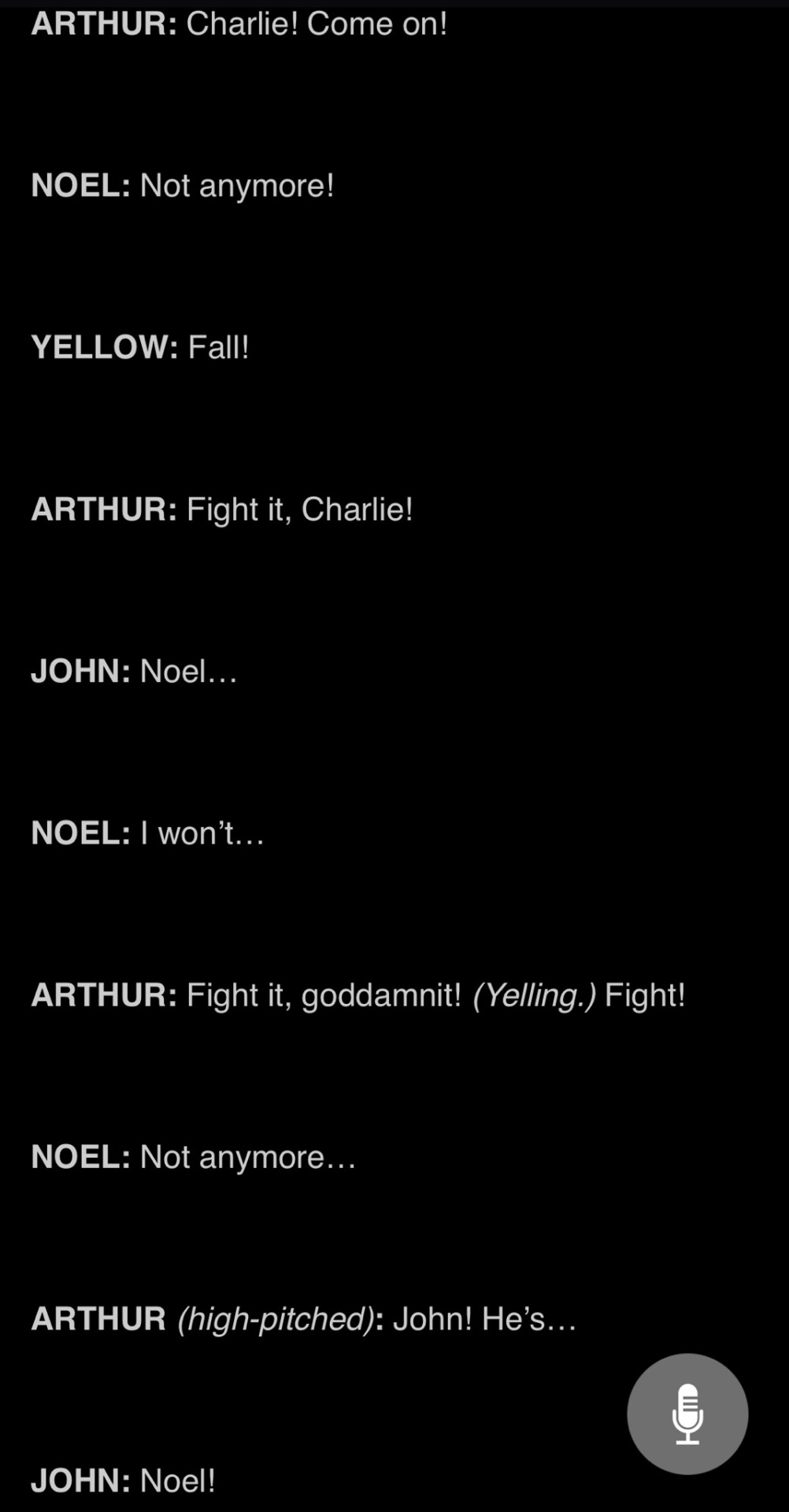
I like to think that the use of both names is because just as Charlie/ Noel accepted both John and Arthur both as a unit and as separate people, the two characters are doing the same by accepting and recognising both the detective’s (past and present) identities as well. They decide to accept and save any and all versions of Charlie/ Noel.
Of course this is not the only interpretation. For example, the use of one name or the other might reflect how John and Arthur are recognising core parts of themselves within Noel/ Charlie instead.
John is calling the detective by his chosen name because he is honouring Noel's choice to start anew. Noel had been hurt in every possible way and reduced to nothing after his experience in the Dreamlands. The detective found that the only way to move forwards was by leaving all the (too far) damaged parts of himself behind and try to create a new self. A clean slate and new name for a new beginning to start a better life somewhere new. He needed to leave his past behind and forget the parts of himself he didn't want anymore. That was what John did too when he dissociated from the King in Yellow and began forming his own identity.
On the other hand, Arthur is calling the detective by his real name because he is honouring the person Charlie was in the past. Charlie was the part of himself that he left behind because he deemed too damaged and too ugly to salvage. Arthur drags behind his past mistakes like deadweight, he carries all the guilt and sorrow with him wherever he goes. He wants to believe that all the hurt, all the damage and all the scars he deems as the ugliest parts of himself don't make him an utterly repulsive and unlovable monster. I think he is trying to demonstrate that Charlie is just as worthy of being saved as Noel is, weaknesses and broken parts included.
Hm, and I seem to have gone off a giant tangent here... I shall stop blabbering now before I completely lose track of what this analysis was supposed to be about.
#malevolent#malevolent spoilers#malevolent part 40#arthur lester#john doe#charlie dowd#noel finley#detective noel#and now i am just going to be a little silly in the tags. so pardon me for my nonsense:#arthur and john are given the name dies irae and this title implies their decision to either save or condemn other characters-#is absolute and just. so if we take into account that they BOTH made the conscious decision to reach out and SAVE noel...#maybe i am just delusional but it wouldn't make sense for the detective to die right after this scene#SO what i am trying to say is that noel survived the gunshot wound to the neck and did not die at the end of s4. in this essay i will--
100 notes
·
View notes
Text
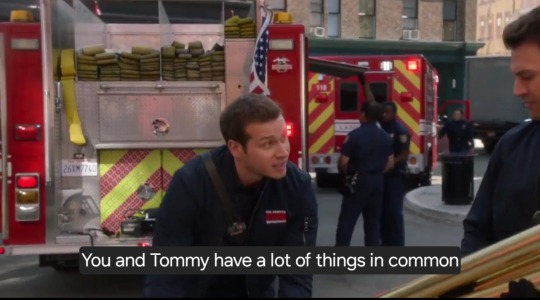
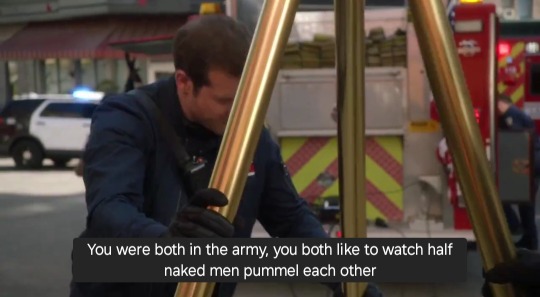
what is going on like genuinely
#he didnt have to say it like that. that was a conscious choice on the part of the writers. a purposeful decision. fucking hell#911 spoilers#911#9-1-1#eddie diaz#evan buckley#buddie#911 abc#im scared guys i think theyre gonna make him bi for real 😭😭😭😭😭😭😭😭😭😭😭😭😭😭😭😭😭
154 notes
·
View notes
Text
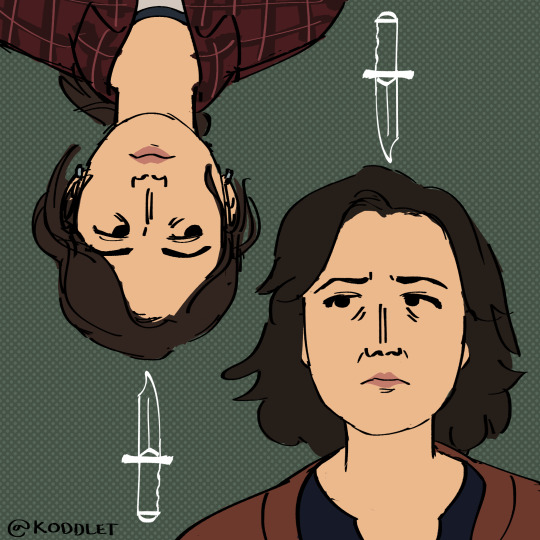
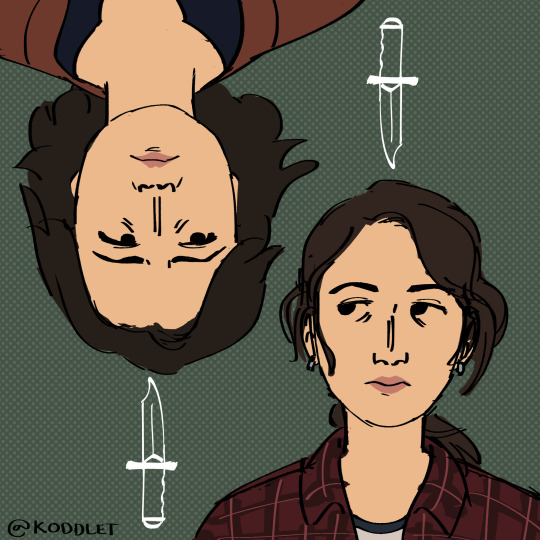
you're the one holding the knife (cover for my shauna playlist)
#guys she and jackie are taking up so much of my brain right now...... there will be a jackie cover incoming....#this fixation is becoming detrimental to me because i have things i need to do but i'm just drawing their gay asses!#i'm a bit obsessed with drawing her side profile like i had to make a conscious decision to Not be a side view#although it would've matched with what i'm thinking for jackie but whatever#shauna shipman#yellowjackets#yellowjackets fanart#digital art#illustration
294 notes
·
View notes
Text
There is something in particular that we need to discuss in regards to the ending Minthara gets with an embraced Durge that is unique to Minthara. Hopefully by now, we are all aware that at some point, it was planned that Minthara would be pregnant by the end of the game and Larian cut this. Sadly, I do not have a pickaxe in the datamine so I do not know the full conditions of what would trigger it (ie, I do not know if it was meant to be a Durge specific pregnancy).
However, if you embrace Bhaal and talk to Fel you can ask him if Bhaal will allow you to spare your romance partner. Here is what he will say in general:

And here is what he has to say about Minthara specifically:

^ These lines of dialogue have been in the game for a while and are still accessible as of Patch 7.
The only clear thing that we get from this line is that Bhaal most certainly does like Minthara and approves of her (and she is the only companion Bhaal likes). He also seems to be very well aware of her fertility and sees it as a major benefit. And Bhaal very much would like Durge to use Minthara to breed and raise the next generation of Bhaalspawn. The only thing that is rather vague is whether or not Minthara is currently pregnant with Baby Durge. I mean, it would be wild if she was considering that Daedra is female and doesn't have the "right equipment." I mean, anything is possible when it comes to Bhaalspawn and reproduction. But I am going to go with the headcanon that Daedra can indeed get Minthara pregnant if she really wanted and this is good enough for me! My evil drow lesbians deserve the right to make evil drow babies together!
I also had a mutual express to me their confusion as to why Bhaal would have Durge kill Minthara if Bhaal does like her and may potentially be pregnant with Baby Durge. Bhaal is the definition of chaotic stupid. Not everything that he does makes any logical or rational sense. Bhaal's wet dream is for everything to die, specifically through murder. He does not care if that death is an inconvenience or will backfire, he just wants death and murder because he's fucking dumb (comparatively, Lolth and Shar are good examples of what it means to be a murderous god and be smart about it). I also want to note that Durge killing Minthara, or any of the romance partners, is not Bhaal forcing Durge, but Durge willfully choosing to do so. As Fel said, Bhaal is giving Durge the choice to spare their romance partner, but they do not have to do so. At least, not right now and it seems like Bhaal would prefer that they keep their romance partner alive specifically to make babies.
As stupid as Bhaal may be, he is at least smart enough to have backup plans and contingencies. This is why he created his own horde of Bhaalspawn and why every Bhaalspawn has the instinctive desire to breed. I can do a separate mini post about this to go into the lore of it if people want, but what you really need to know is that Bhaal essentially cannibalizes his own children. Every time a Bhaalspawn dies, a piece of their divinity gets returned to him and it makes him more powerful. So Bhaalspawn want to make more of themselves, and then kill each other because the more Bhaalspawn that die, the more powerful Bhaal becomes. Every single Bhaalspawn is born to die.
So, how does this all relate to Minthara and her baby? Well, her baby would be a Bhaalspawn, but not just any Bhaalspawn, they would be mini Dark Urge. A mini Dark Urge Bhaalspawn who would inevitably be driven to kill Durge one day, and maybe even Minthara since Bhaalspawn have a nasty habit of killing their parents. Most importantly, this baby is meant to be a backup plan, Durge's contingency. Bhaal does not care if a Bhaalspawn dies, because their death empowers him. Bhaal may have his favorites, but he does not need to like his child in order for them to carry out his prime directive of kill everything. Although he was pissed that Orin attacked Durge and usurped them and he does not like Orin, Bhaal still rose her to Chosen because Orin would still be able to carry out his plan of murdering the world. When Durge returns, Bhaal gets super happy because Durge has the greatest potential to fulfill his dream, but Bhaal still requires that Durge earn the title of Chosen once more.
On the precipice of doomsday, Durge has two choices for Minthara, kill her first, or kill her last. No matter what choice Durge makes, they intend to kill her one day as that is what Bhaal's ultimate goal is and Minthara was never going to be an exception, even if Bhaal does like her and may be carrying his grandbaby. The blood eclipse that we do see in the embrace Durge ending is not reality just yet, but a premonition of what would happen if Durge keeps things up. It's a vision of what Bhaal wants Durge to accomplish. Since it is not yet reality, it is possible that Durge could fail and could be killed by other factors. If Durge dies or fails, then Baby Durge would be their backup if Durge chose to spare Minthara. Or, Baby Durge may be the reason why Durge failed because they were drawn together as all Bhaalspawn are and are destined to kill one another.
No matter what choice Durge makes in regards to Minthara's fate, it still benefits Durge and Bhaal in the end. As I mentioned earlier, Bhaal may pick favorites but he does not give a shit if his favorite babies die as he still benefits from all of his babies dying. So him liking Minthara and her being the perfect broodmare was never going to spare her either. At the end of the day, she will have to die in order for Bhaal to jerk off to his wet dream.
Choosing to kill their romance partner right now or later is all Durge's choice to make, not Bhaal's. Sadly, the game only gives you two choices in regards to your romance partner. There is no third option to have them walk alongside Durge during all of this. Ironically, Minthara and Ascended Astarion are the two companions that I think would stand by Durge as they murdered the world and they would gladly murder the world with Durge. But, that was not the choice Larian gave us and that is a major L.
Depending on the choice that you make, you can roleplay the reason that you want and Minthara has a unique RP aspect as she may be pregnant. And Minthara being pregnant with a future Bhaalspawn is excellent RP material. And it need not be because Durge is a callous asshole who never loved Minthara and was only using her as some people are perceiving it to be. Just because Durge will inevitably kill her does not mean that they did not love her or never loved her.
#bg3#baldur's gate 3#minthara#minthara baenre#durge#dark urge#minthara x durge#remember - minthara herself has killed someone she loved solely because she was given the order to do so#it does not mean she did not love the Vandree Priestess - it just means she loved her god more#i do not see why you can't use the same RP reason for Durge here as well#i've also seen it popup in a few places that elves - including drow - can only get pregnant when they make the conscious decision to do so#and that accidental pregnancies amongst elves is incredibly rare#so if minthara ends up pregnant with baby durge#it's because she made the conscious decision to make baby durge#and if durge is an elf themselves - all the pieces just fit right in
60 notes
·
View notes
Text
el being the one to break up with mike again this time would not be good for mike’s character development and i will not be elaborating on it but i’m right
#they NEED to break up mutually at least#bc mike being broken up with again would just show that mike is forced once again into accepting reality#instead of making a conscious decision himself#like he needs to realise it’s bad for him on his own#instead of clinging onto the relationship just to be broken up with#byler#also it’s bad for byler endgame and you KNOW it#mike wheeler
112 notes
·
View notes
Text
every time i see another poor baby merlin "he's too fragile to do anything" take i lose 5 more years off my life
#that's a murdered you're speaking of#put some respect on his name#no but actually.......be so serious#sometimes i wonder what exactly gets people to think like this#is it the clumsiness? despite the fact that it's clearly a simple trait at best and pure physical entertainment at worst?#is it how young he looked in s1? despite him making conscious decisions that led to his harm?#most of all i fear that people simply don't understand that emotionality does not equal fragility#but i mustn't get into that#there arent enough tags for it
126 notes
·
View notes
Text
Abuse, Silence, And Why Kevin Can Fuck Himself
I recently finished watching Kevin Can Fuck Himself on Netflix, and, aside from being the most brutally honest portrayal of domestic abuse I have ever seen, I discovered a beautifully written examination of narrative as power and silence as abuse and how this manifests in our larger culture.
Without going into too much detail, the show is filmed in two distinct styles that are interleaved throughout each episode to tell a cohesive story. Allison and Kevin’s relationship as seen by the rest of the world is told through a multi-cam, laugh-track sitcom that depicts a very typical “goofy husband, shrewish wife” mainstream comedy. Allison’s life through her own eyes is told through a single-cam drama/thriller about Allison planning to murder Kevin to escape his abuse.
It’s an absolute masterclass in screenwriting, but more than that, every episode explores the difference between truth, fact, and reality, and how none of these things are quite as much or as little as story. But while the process of transforming the chaotic and plotless reality of life into a story is as involuntary and essential as breathing, misogyny and the degradation of women is just as ubiquitous in our society, and a story that exists at the expense of another person’s lived reality is a refutation of their humanity.
It's also just a great show for anyone who likes to engage with history (or reality TV or true crime or “real life stories” in general), because while we have to tell ourselves stories about her own lives, we have to tell ourselves stories about other people as well. Eternal silence is narrative death, and the perpetual silence of an unspoken narrative is often the last death we can visit on someone whose story we’d rather ignore.
I also pulled up some books – Lolita and Disgrace – that dealt with similar themes, but from the perspective of the abuser. And what strikes me the most is that, across three beautifully written stories about narrative and silence within a culture that normalizes abuse, Allison, who began her story within a state of narrative death, was the only point-of-view character who had any chance of surviving.
One of the main themes of Kevin is that a compelling story is often a story that reinforces what we already believe or like to believe, and while the story may be factual and true it often also exists at the expense of someone's lived reality. The exact same series of events can be a silly joke or a harrowing tale of abuse depending on the lens through which we view it, but historically we've only been willing to see the multicam, laugh track, sitcom perspective on unbalanced relationships.
The alchemical process of turning a series of disjoint facts and experiences into a narrative creates something new and compelling, and erases much of what previously existed. In this way, it’s entirely irreversible. We spin our experiences into a very thin thread, a story we can tell ourselves that elicits something within us, something we need in order to live with the complex, uncertain, and unsatisfying reality of life. In think in many ways the thing we elicit in ourselves is truth. But truth is both more and less than fact, often more a reflection of our own beliefs and desires than the events of our lives. And in telling that truth we may never stray from the facts, but we almost by definition cannot give voice to another person’s reality.
There's a scene in season 2 of Kevin when Allison is hit by a door – a la the classic excuse – because of Kevin’s carelessness. And while he absolutely did not hit her, the way it's written is such an incredible allegory for how Kevin has curated their story and curated their friends' and family’s perceptions of their story such that even if she tells everyone the exact, unvarnished truth of what's happening to her and begs for help, they will only be capable of seeing the laugh-track, sitcom, “Kevin is a harmless goofball and his wife is a total shrew” perspective on the events of their lives.
As so often happens with abuse, their friends and family saw Allison being hurt because of Kevin. But the alchemy of creating a narrative around Kevin and Allison is irreversible, and the series of events they witness can only be spun together to a joke, an accident, a silly, childish mistake. Allison’s reality, Allison’s pain and fear, is completely elided. Like a lost sound in the middle of a sentence, her experience goes silent, and their larger understanding of her relationship never has to change. And you feel so acutely how Allison lives her entire life in that silence.
Storytelling is human, it’s essential, there’s no other way to engage with our own lives. And it’s not lying. It’s never lying to tell the truth. But it doesn’t reflect every reality, either, because another person’s reality can’t be reflected within our own narrative, because that’s what it means to be another person. To spin two different threads.
And because narrative is the essential process by which we understand our reality, denying someone their own narrative, or denying that this narrative be heard, is inherently abusive. To allow someone a voice is to give them humanity, and to suppress it is to strip that humanity away.
Disgrace, by J.M. Coetzee, follows the story of a professor, David, who rapes a student and then fails to protect his daughter, Lucy, from being raped by intruders in their home. He destroys his daughter’s life – not through failing to protect her, but through twisting her rape into a story about why the rape of his student wasn’t wrong. The main theme of the book is generally considered to be exploitation, but Coetzee doesn’t deal with the exploitation of the rape. That’s too direct, too immediate, too easy for the reader to understand as misogynistic and wrong. Rather, Coetzee delves into “the innocuous-seeming use of another person to fill one's gentler emotional needs” (Ruden).
The rape is how we understand David as a fundamentally exploitative person, a person who denies others their humanity by converting them into a vessel for his own desires, who erases their voice in order to speak through them and give himself the things he needs. And that’s how we recognize that the way he absorbs and claims the stories of his daughter and his student is another kind of violation of their humanity. Another way of turning women into vessels for men’s pain and fear and need.
What’s fascinating is that David's student finds her voice – files a complaint against him – and is eventually able to continue with her life. The woman he raped is less damaged by him than his own daughter, because she was the woman he couldn’t permanently silence.
In Lolita, another brilliant novel about abuse, dehumanization, and storytelling, Humbert turns to the reader at the end and says, “Imagine us, reader, for we don’t really exist if you don’t.”
It’s not that Humbert knew he was fictional, but that he knew everyone was fictional. Believed the entire world only truly existed in his own mind, because anything beyond that was irrelevant to his needs. He coped with the collapse of his ability to dehumanize Dolores (who he called Lolita) by demanding that his voice be resurrected. Demanding immortality. Demanding his narrative exist in another person’s world, and thereby be given the existence and humanity that Allison and Dolores and Lucy and David’s student were denied.
Pushing his needs, finally, onto the reader, because we are the only person he has left, and a person like him can only exist through the use of another. In that way, Humbert was powerless. In that way, Kevin and David were powerless, too.
In Disgrace, David’s dream is to write an opera, and at the end of the book he realizes he’ll never finish his magnum opus. He’ll never be able to terminate the process of converting himself, his world, into a story. But he does learn to decenter himself in that narrative. And it’s when he loses all fear of death, and any conception of the self, that he gains the ability to give dogs – who he generally equates to women – a voice within his opera, his life’s work.
It’s in death that we discover our true unimportance as human beings, that we learn to let go of vanity and our conception of the self entirely. And David had degraded women so thoroughly in order to justify how he used them to meet his own emotional needs that it was only in losing all value for his own life that he could gain the ability to see them as equal voices. To actually put those voices into his own life story. It's at the cost of himself that he allows other people to truly exist, in the death of the self that he finally allows the world to exist outside of himself. It’s almost a positive character arc. Almost.
When Kevin finally loses the ability to abuse Allison, he, like many abusers, loses all desire to live. His world was built on a structure of superiority and inferiority, on beings and vessels, on the inherent value of men and the inherent meaninglessness of women’s lives. The system on which he based his entire reality has been destroyed by Allison’s declaration of the self. And, if he was a being because she was a vessel, then in losing the ability to treat her as a vessel, to fully and completely dehumanize her, he has lost his own humanity.
It may be perfectly summed up here: “Become major. Live like a hero. That's what the classics teach us. Be a main character. Otherwise, what is life for?” (Coetzee).
If you’re not to be a main character, if there indeed is no split between major and minor characters, between people and the paper dolls that populate their story, between living beings and the vessels into which they pour their need – what is life for?
Nothing. At least, not for people whose narrative must exist at the expense of another.
And that’s why I say that only a narrator like Allison could survive this kind of story. Despite beginning her story trapped in eternal silence, her reality fully elided no matter how immediate and obvious it became, Allison was the only point-of-view character of any of these three stories who didn’t establish her power through the degradation of another. Who didn’t conceptualize the world via being and vessels. Whose narrative didn’t exist, by necessity, at the expense of another person’s humanity. Whose thread could exist in a larger tapestry without destroying her sense of self.
Don’t get me wrong, she’s not generally a likable character. She’s misogynistic, cruel, selfish, jealous, desperate, afraid, and in pain. Like anyone in an abusive relationship, she’s not at her best, and she’s often pushed to do things that are ugly and disturbing because she’s simply been pushed too far.
But, for me, the power in her character is in how her last scene never felt like a final scene. Her story didn’t have to be killed, her conception of the self didn’t have to be killed, in order to reveal the brutal reality of stories twisting and intertwining without any inherently superior truth or narrative among them. Allison’s story was one of declaring herself. And that’s why it didn’t feel like it ended at the end. Instead, this felt like a beginning.
#this is probably the most egregious 'post that no one asked for' that I've ever written#but man this show HIT me y'all#and then I went back and reread parts of disgrace and that hit me too#it also made me reconsider my online presence and how I myself engage with narrative in the very small little world I'm a part of#I caught some shit a while ago and made a conscious decision to never comment on the narrative around the beatles#and to be clear I was just talking about a general narrative in society at large I wasn't bringing up anything specific or attacking people#more how larger social narratives filter into and sometimes come to define individual stories#but it was upsetting to people and I figured instead I can just try to express a compassionate perspective on the mentally ill myself#but now I wonder if I've gone too far#idk without naming any names I'm getting unblocked by people who should definitely still find my mindset intolerable to their worldview#and I don't blame them because we all have reasons for the things we believe and we're all just doing our best#but it's a canary in the coal mine#it makes me think I've become so focused on not ruffling feathers that I'm tacitly approving some disturbing beliefs#and I think I could have happily ignored that if I hadn't just watched this show#posts that no one asked for#kevin can fuck himself#kevin can f*** himself#op#longer rambles
38 notes
·
View notes
Text
One worldbuilding detail Soul Eater really had going for it was the way they explained everyone having weird, unique and horror-movie inspired names such as Soul Eater, Black*Star, Franken Stein.
The school all these kids attend allows them to sign up with any name they want and to change their names once every six months.
You better believe if I were a thirteen year old with the ability to turn into a scythe and eat monster souls I'd call myself Soul Eater too. "But isn't his original name 'Soul Evans'? That's already a weird first name." He's from a family of musicians. He probably has a cousin called R'n'B.
It also made for the very nice touches in charaterisation where you'd see a character calling himself "Ox Ford" and knew immediately which brand of arrogant, insufferable child-prodigy this guy represented and you'd be absolutely right. Why is there a girl who can turn into a lantern who's name is "Jackie O'Lantern"? Because she's the funniest teenager on the squad.
Shoutout to Maka Albarn for taking her education so seriously she decided to not get herself a fun name, and to Justin Law, who let's say, subverted expectations.
It also just makes total sense for their wacky and non-conforming headmaster to not give a shit about names, or birth names, or gender norms. Death said trans rights, yo.
#bonus points to death the kid who absolutely just kept the name he was given at birth#death was really horrible at naming things#no wonder he just handed that responsibility to the kids#soul eater#soul eater meta#worldbuilding#soul eater just embraced that people are just like that and that a lot of the weirdness in the setting#are characters making conscious aesthetic decisions#why was medusa never caught as a fake nurse despite not changing her name or appearance?#because there is a literal zombie on the teaching staff and it's not the person covered head to toe in bandages#the overwhelmed half-scythe-man having meltdowns in the hallway is the most normal guy here medusa didn't trigger anyone's weirdness radar#they just thought she was a lesbian#that's probably how stein caught her out anyway#shonen anime
157 notes
·
View notes
Note
Hi! I noticed something about your writing: the way you place words together seems a bit different, like the way the characters speak, it seems different from the way I normally see people writing or speaking. I don’t know if that makes sense. Is it formal English, or maybe British English (I assume you’re British)? Sorry if this question sounds weird, I’m not a native English speaker. Also, I love your writing! It truly is captivating.
Interesting!
I live and was educated in the UK, so I write British English with a few Americanisms (we get a lot of US media over here and a lot of online spaces in general are more US-English than British) and probably a dash of influence from my being a dual national/being bilingual.
It's not particularly formal English. I'm told I write like I talk, up to a point.
Fun fact! Did you know that if I was writing in fully British English, all my dialogue would have single speech marks instead of double? E.g. 'this is dialogue.' instead of "this is dialogue."
#fascinating#obviously we all try and make conscious decisions about word placement when we're writing#but it's also easy to be blind to your own work
93 notes
·
View notes
Text
Guys, this is my masterpiece

Based off of this:

#making Tom float was a conscious decision#my art#art#digital art#my digital art#my artwork#eddsworld#eddsworld art#eddsworld fanart#digital inking#walter white#pride#pride month#ew edd#ew tom#ew tord
56 notes
·
View notes
Text
Current mood
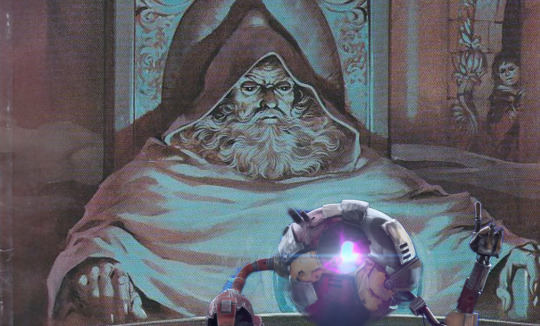
#star trek#star trek prodigy#fugitive zero#god I just#what a fucking character concept#theyre like if odo and seven were merged into a child with an even more fucked up appearance#but instead of being gruff and cold they make the conscious decision to be kind#to repay the harm they were forced to cause#and theyre nonbiney#whats not to love
119 notes
·
View notes
Text
i love everything they gave us with maria's character in shadow gens because not only has it made her a much more interesting character, but it's also strengthened how much she and sonic would for sure get along
shes brave and isnt afraid to speak her mind!! i loved her standing up to black doom, the fact that she had the courage to yell at him like that really shows her character. we can also see her standing up for shadow when abe calls him a monster in one of the cut dark beginnings scenes.
and tied in with that is that she finds the unknown and things others would probably find scary or offputting to be interesting!! her parents were worried about sending her to space but she just thought it was cool! and rather than being scared, she finds white space interesting!
and that alongside her talking about the aurora borealis in dark beginnings, and her dialogue about their teacher, we can tell that she also had that scientist-like curiosity and love for knowledge that the rest of her family has :) it makes you wonder what she would've ended up doing if she had gotten to grow up...
i just really like the further details we've gotten, as it honestly lines up with how i've liked to think about her for a while. she wasn't just a whispery sick little girl, she was smart and brave and fascinated by the unknown!!!
#i mean we could always assume she was brave considering her actions during the ark raid. but its nice to know that like yeah.#she fully knew what she was doing. and whooofff that always makes me so sad#she was so young and she literally got shot in the chest and yet she still was brave and strong enough to push through it and#make the conscious decision to sacrifice herself in order to save shadow. and to keep a level head and even give him one last smile#like fuck dude. FUCK. she was so strong. can someone get me out of here if i think about how she got killed with the new context#of knowing more about who she was IM gonna destroy the world out of revenge#serena.txt#sxsh spoilers#sonic x shadow generations spoilers#shadow generations spoilers#maria robotnik
24 notes
·
View notes
Note
nick is so bad tell him i want him (i have short black hair so im basically sunny)

Nick says thanks! :D
#hehehehe i loved making that#i LOVE IT when people ask questions to these guys......#if i thought an ask blog would work for 'em i'd make one#thank you so much for the ask anon that was very very fun.#drawing#art#digital#gif#animation#(somewhat)#omori#arsenic#ask#anon#omori basil#omori sunny#omori au#omori sunflower#sunnflower#i set this pre-incident so they don't have the eyepatches I PROMISE I DIDNT JUST FORGET IT WAS A CONSCIOUS DECISION
45 notes
·
View notes
Text
here's my hot take for the night: way less people, if anyone, would misinterpret Maigu Ridge as rape if Shen Qingqiu had topped instead of Binghe
#like I cannot understand how you could possibly read that scene (and the aftermath!) and come to that conclusion#one person was conscious and making decisions and it wasn't binghe#NEITHER of them wanted it#much less thinking that scene was supposed to be kinky and sexy ???#not to even mention its narrative purpose#not the Narrative Expectations happening in the Subverting Narrative Expectations book! shocking!#“but how is it subversive if the same things still happened!!1!” BECAUSE IT WASN'T GOOD AND DIDN'T FIX ANYTHING! THAT'S THE POINT#svsss#bingqiu#scum villain's self saving system#人渣反派自救系统
117 notes
·
View notes